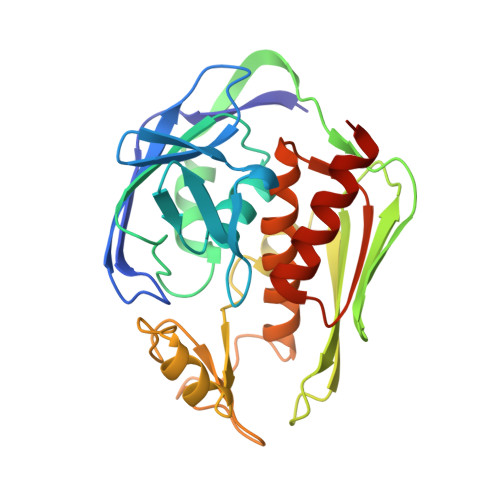Drug design from the cryptic inhibitor envelope.
Lee, C.J., Liang, X., Wu, Q., Najeeb, J., Zhao, J., Gopalaswamy, R., Titecat, M., Sebbane, F., Lemaitre, N., Toone, E.J., Zhou, P.(2016) Nat Commun 7: 10638-10638
- PubMed: 26912110
- DOI: https://doi.org/10.1038/ncomms10638
- Primary Citation of Related Structures:
5DRO, 5DRP, 5DRQ, 5DRR - PubMed Abstract:
Conformational dynamics plays an important role in enzyme catalysis, allosteric regulation of protein functions and assembly of macromolecular complexes. Despite these well-established roles, such information has yet to be exploited for drug design. Here we show by nuclear magnetic resonance spectroscopy that inhibitors of LpxC--an essential enzyme of the lipid A biosynthetic pathway in Gram-negative bacteria and a validated novel antibiotic target--access alternative, minor population states in solution in addition to the ligand conformation observed in crystal structures. These conformations collectively delineate an inhibitor envelope that is invisible to crystallography, but is dynamically accessible by small molecules in solution. Drug design exploiting such a hidden inhibitor envelope has led to the development of potent antibiotics with inhibition constants in the single-digit picomolar range. The principle of the cryptic inhibitor envelope approach may be broadly applicable to other lead optimization campaigns to yield improved therapeutics.
Organizational Affiliation:
Department of Biochemistry, Duke University Medical Center, Durham, North Carolina 27710, USA.


















